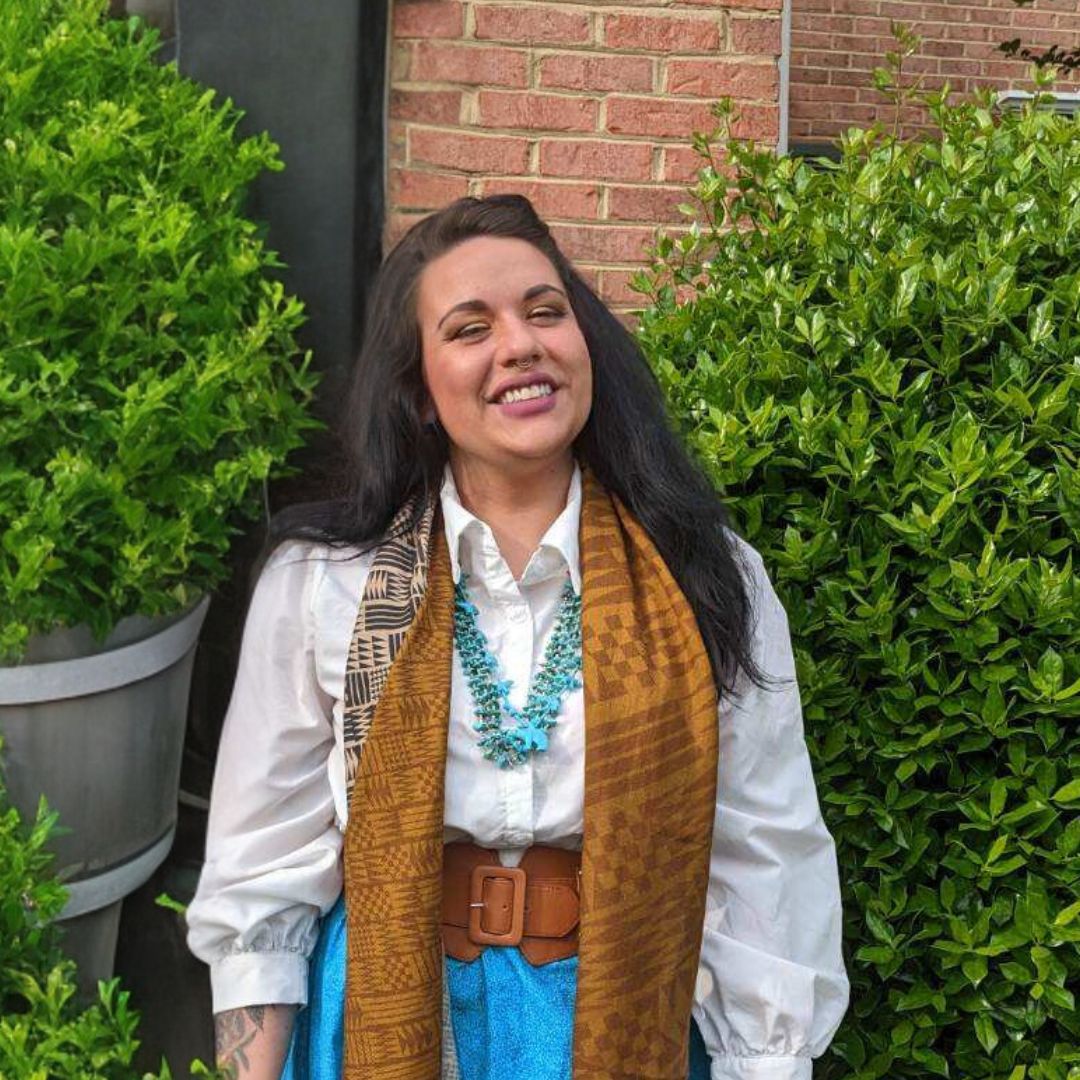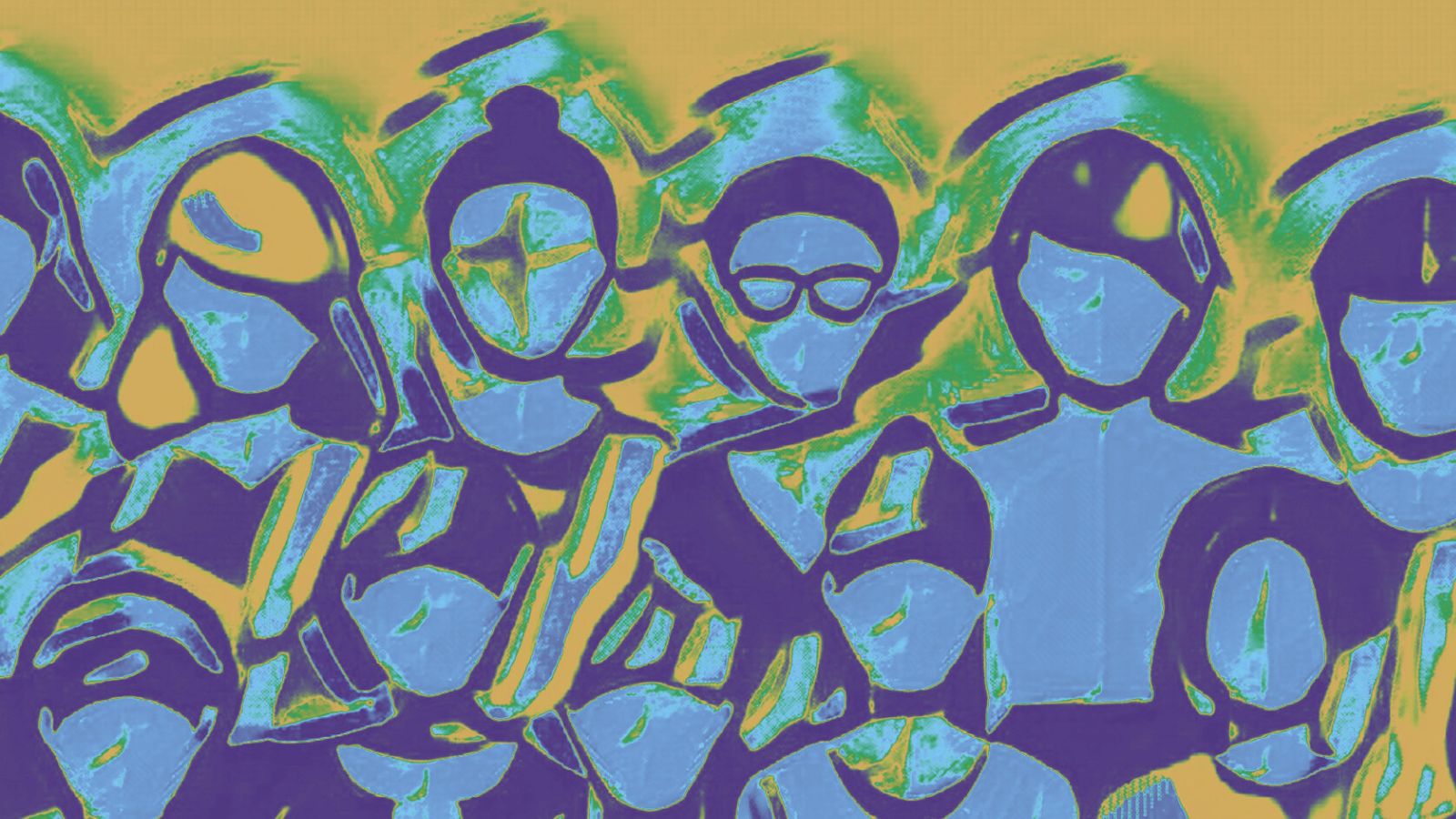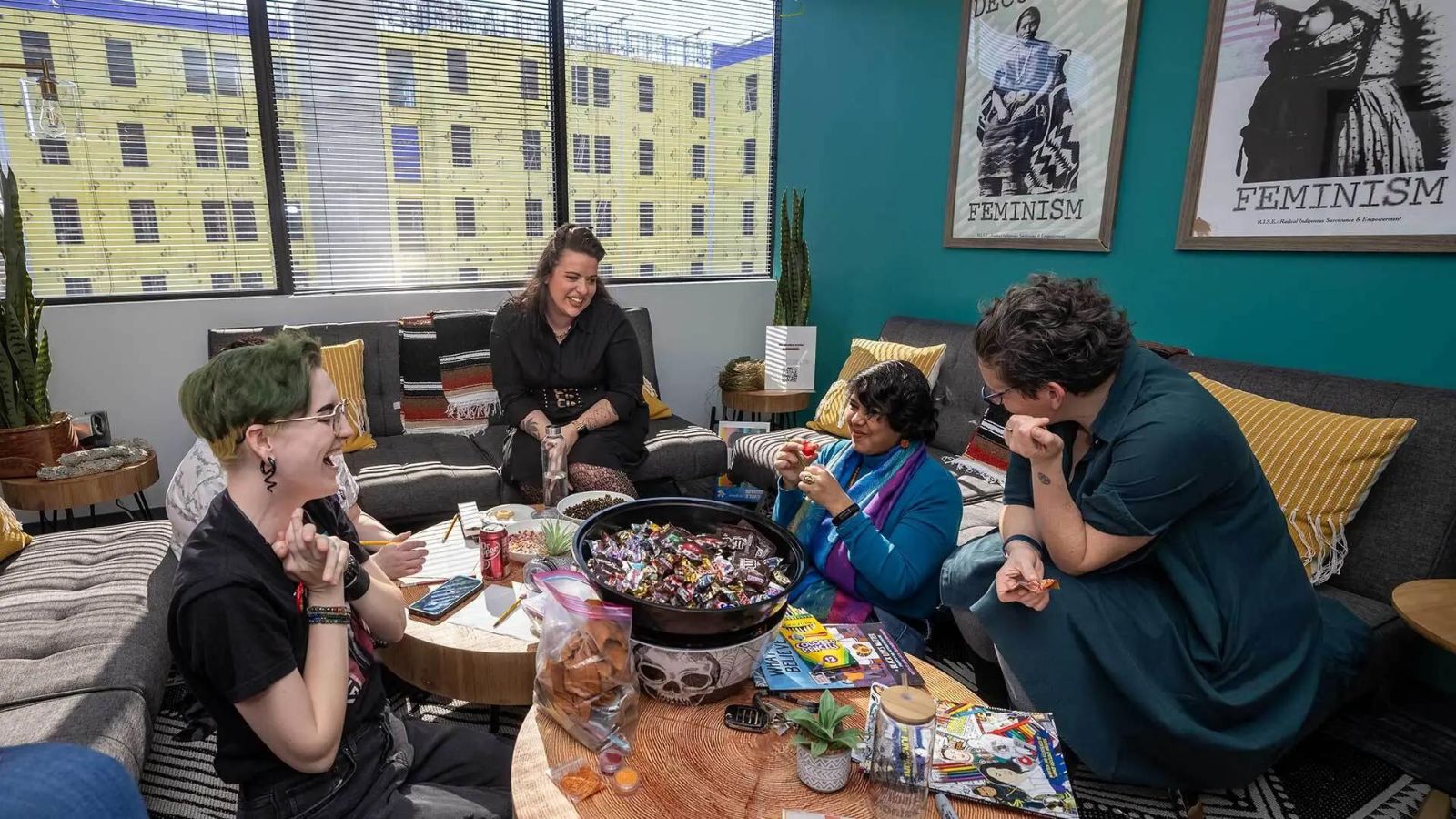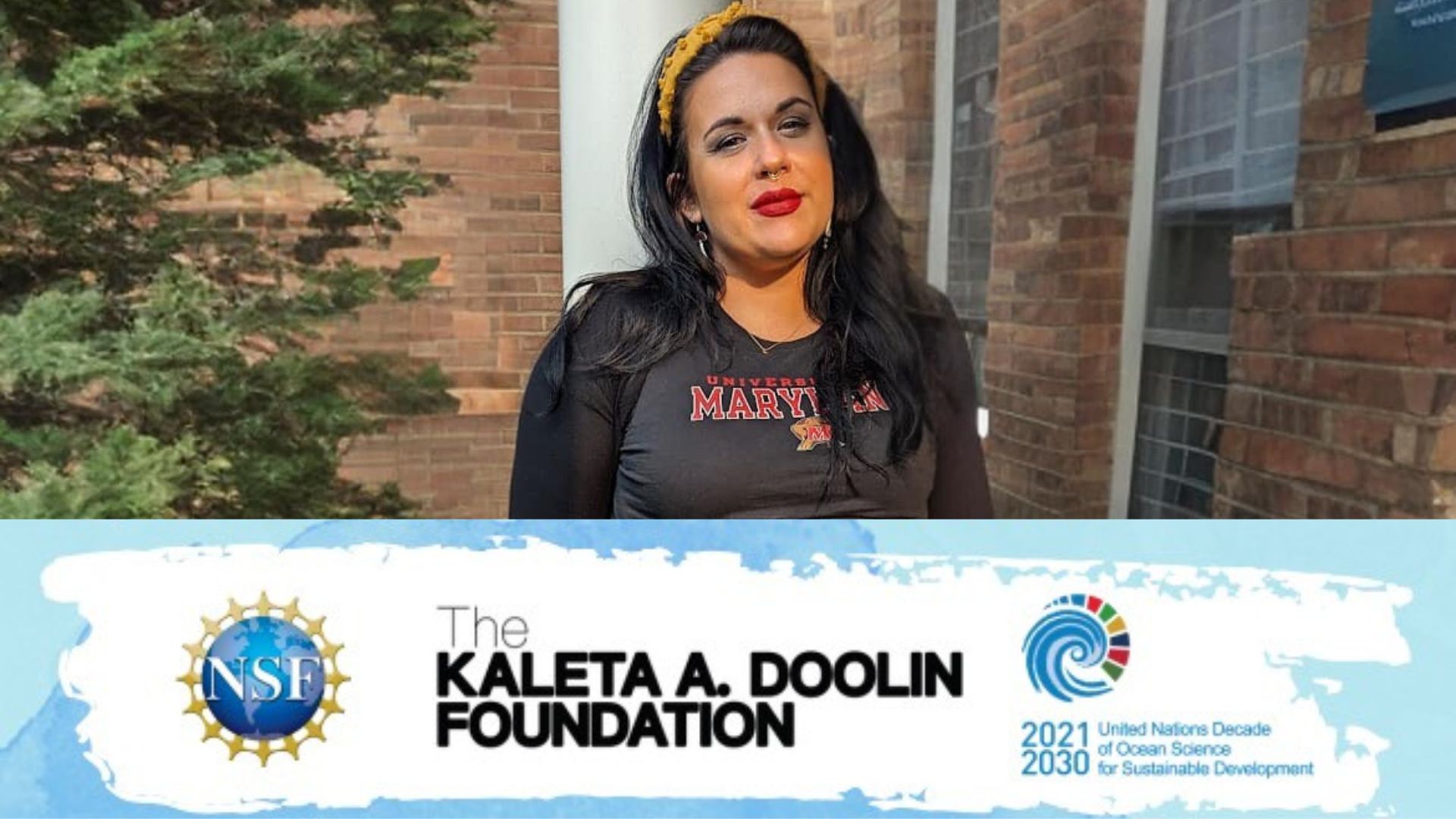Shelbi Nahwilet Meissner

Assistant Professor, The Harriet Tubman Department of Women, Gender, and Sexuality Studies
Shelbi Nahwilet Meissner (Luiseño & Cupeño) is an Indigenous feminist philosopher. Shelbi researches, teaches, and consults on Indigenous research and evaluation methods, cultural and language reclamation, Indigenous epistemologies, Indigenous feminist interventions in critical social work, and land-based feminist coalition-building. Shelbi is fascinated by the intersections of Indigenous knowledge systems, caretaking, power, and trauma. Shelbi is a proud first-generation descendant of the La Jolla Band of Luiseño Indians, and is of both Luiseño (Payómkawichum) and Cupeño (Kupangaxwichem) descent. She is an assistant professor in the Harriet Tubman Department of Women, Gender, and Sexuality Studies at University of Maryland, College Park and the founding director of the Indigenous Futures Lab, a hub of Indigenous feminist research and evaluation.
The Indigenous Futures Lab is a hub of Indigenous research, evaluation, and relationship-building where we center Indigenous knowledges to build futures of co-flourishing. The mission of the Indigenous Futures Lab is to honor and serve local Indigenous communities in their struggles for justice, co-create Indigenous futures through Indigenous-led scholarship and activism, and build coalitions that center the land and all of our relations. Some of the projects on the horizon for the Indigenous Futures Lab include: Piscataway Pathways, an archival access project the centers the epistemic and linguistic sovereignty of local Indigenous communities; a faculty coalition around Black and Indigenous environmental futures; an Indigenous knowledges speaker series; the virtual Decolonizing Death Cafe, where practicing and aspiring care workers can co-create community around reclaiming Indigenous death and grieving practices; Bead, Weave, and Read, a series of workshops that combines art, theory, and visiting; and many other community feasts and events.
Publications
Roots of Access: Un-Lock(e)ing Coalitions for Indigenous Futures and Disability Justice
Shelbi Nahwilet Meissner publishes article co-written with Joel Michael Reynolds
Author/Lead: Shelbi Nahwile…Non-ARHU Contributor(s): Joel Michael Reynolds, Georgetown University
State violence against disabled people and Indigenous people as well as disabled Indigenous people has long been endemic in the US. Recent scholarship in philosophy of disability and disability studies rarely addresses the underlying issue that causes such state violence: settler-colonial conceptions of land. The aim of this article is to begin filling this gap in the literature. We detail settler colonial epistemologies and argue that the property relation underwrites operative concepts of accessibility dominant across disability theory. We show how such concepts of accessibility are Lockean and thereby defined terms of the project of settler colonialism. We instead offer an Indigenized account of access, which we term deep access, that does not rely on the notion of Lockean property and that provides a coalitional path for Indigenous futures and disability justice. On our account, decolonization is and must be a deep access measure.
Climate Crisis as Relational Crisis: Centering Indigenous Feminist Conceptions of Responsibility in Environmental Discourse
Dr. Meissner publishes new article in Feminist Philosophy Quarterly
Author/Lead: Shelbi Nahwile…Non-ARHU Contributor(s): Andrew Frederick Smith, Drexel University

Abstract
It is commonly assumed that we currently face a climate crisis insofar as the climatological effects of excessive carbon emissions risk destabilizing advanced civilization and jeopardize cherished modern institutions. The threat posed by climate change is treated as unprecedented, demanding urgent action to avert apocalyptic conditions that will limit or even erase the future of all humankind. In this essay, we argue that this framework—the default climate crisis motif—perpetuates a discursive infrastructure that commits its proponents, if unwittingly, to logics that ultimately reinforce the dynamics driving climate change and its attending injustices. By centering Indigenous feminist environmental discourses, which privilege the role of richly interweaving networks of responsibilities composing extended more-than-human kinship arrangements, we contend that climate crisis is instead primarily a manifestation of devastating multidimensional relational disruptions of Indigenous lands and lives. More pointedly, it is a rebound effect of centuries of accumulating colonial injustices against responsible lifeways that are critical for socioecological adaptability and responsiveness. Framing climate crisis as relational crisis hereby creates discursive space for much needed transformational Indigenous feminist visions for justly and effectively addressing climate change.
This article was published in Vol. 10 No. 1/2 (2024): Revolutionizing Responsibility.
Indigenous Feminist Evaluation Methods: A Case Study in "My Two Aunties"
Shelbi Nahwilet Meissner publishes new article in The Canadian Journal of Program Evaluation
Author/Lead: Shelbi Nahwile…Non-ARHU Contributor(s): Jeremy Braithwaite, Karan Thorne, Art Martinez, Elizabeth Lycett

This paper offers some key characteristics of Indigenous feminist approaches to evaluation and spotlights a unique and promising example of Indigenous feminist evaluation methods in the My Two Aunties (M2A) program. Though Indigenous feminist evaluation methods are diverse, complex, and community-specific, some general characteristics we point to in this analysis are commitments to anti-colonial conceptions of family, gender, and belonging, an assertion of the epistemic and evaluative importance of felt knowledge, the explicit confrontation of settler colonialism’s impact on Indigenous life, and the commitment to the transformative potential of community-led caretaking. We then turn to what we see as an exemplar of Indigenous feminist evaluation methods—the evaluation component of the My Two Aunties (M2A) program. Our paper will provide theoretical scaffolding for Indigenous feminist evaluation and add to the growing body of Indigenous scholarship that challenges what “counts” as evidence in settler scholarship arenas.
Talk
Indigenous Insights: S03E04: Indigenous Feminist Evaluation: Shelbi Nahwilet Meissner
Shelbi Nahwilet Meissner appears on podcast with Gladys Rowe
Author/Lead: Shelbi Nahwile…In this episode host Gladys Rowe engages in a powerful conversation with Indigenous feminist philosopher and educator Shelbi Nahwilet Meissner. Shelbi shares her journey into evaluation through her work on Indigenous language reclamation and her deep engagement within Indigenous research methods. She discusses the significance of relationship-building, the centrality of kinship and gender diversity, and the creation of the Indigenous Feminist Evaluation Framework. Shelbi also highlights her role as the founding director of the Indigenous Futures Lab and her inspiring work on community-driven projects. Together, Gladys and Shelbi reflect on how Indigenous knowledge systems, felt knowledge, and artistic practices like basket weaving can transform research and evaluation processes. This episode is a rich exploration of Indigenous feminist approaches to evaluation and the importance of centering community voices and diverse knowledges.




